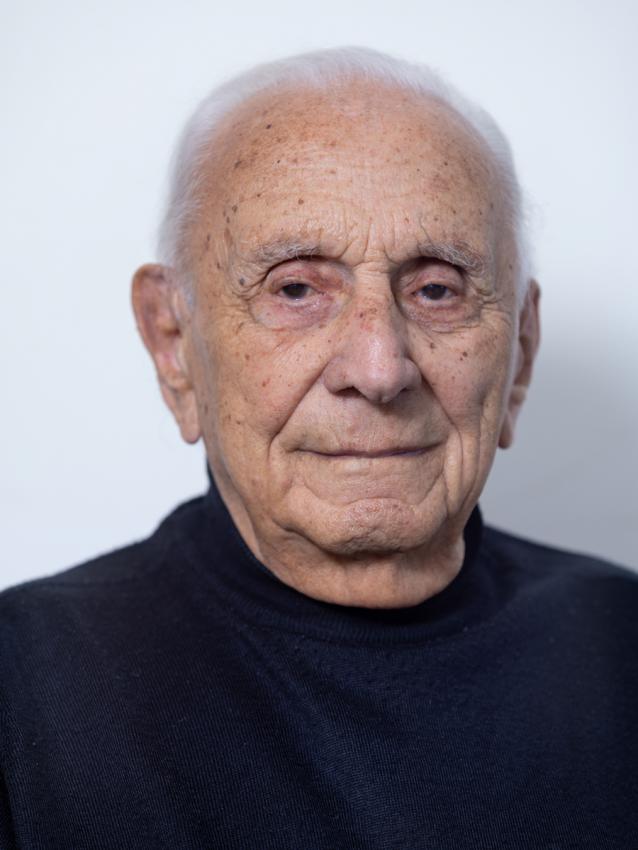Izi (Itzhak) Kabilio was born in 1928 in Sarajevo, Yugoslavia (today Bosnia and Herzegovina), the only child of Leon and Netta (née Birenberg). He attended the local Jewish school and the state gymnasium, was a member of the Hashomer Hatzair youth movement, and sang in the children’s choir at the city’s Great Synagogue. Leon owned a silk and wool factory that employed 250 workers and was one of the founders of the Jewish “Geula” bank, sitting on the board of directors until the bank’s closure following the German invasion. On Passover, Izi’s grandfather used to read the Haggadah in Hebrew and Ladino, and would tell him about Jerusalem. In January 1941, just months before the German occupation, Izi was scheduled to leave for Eretz Israel (Mandatory Palestine) through the Youth Aliyah but was pressured by his grandfather and mother to cancel his plans.
The Germans occupied Yugoslavia in April 1941. They nationalized Leon’s factory, and Izi witnessed the destruction of the Great Synagogue by an unruly mob. The last seder night in Izi’s grandfather’s home during the occupation was a somber event, conducted by candlelight.
One of Leon’s factory employees, a German mechanic by the name of Josip Eberhardt, was on friendly terms with him. After the German occupation, Eberhardt was recruited by the Gestapo but maintained his friendship with Leon.
In September 1941, the ultranationalist Croat organization Ustaša that ruled the Independent State of Croatia at the behest of the Germans deported Izi’s grandparents to the Jasenovac camp, where they were murdered. Eberhardt came to the Kabilio home and escorted Leon, Netta, and Izi to his house, hiding them in the cellar. He obtained forged papers for them and smuggled them into the city of Mostar, which was under Croat civil rule and Italian military control. From Mostar, the Kabilios were continuously on the move and escaped to Split, but they were eventually caught and deported to a concentration camp near Dubrovnik. In March 1942, they were sent to a concentration camp on Rab Island.
After Italy surrendered to the Allies in September 1943, anti-Nazi partisans raided the island and ferried the Jews by boat to dry land. Izi and his parents reached the vicinity of Croatia, which had been liberated by the partisans. They went up into the mountains where they lived with the partisans. Izi fought in their ranks, and Leon made a Hebrew calendar so they would be able to mark the Jewish holidays.
At the war’s end, Izi and his parents returned to Sarajevo. Izi graduated from the gymnasium and studied engineering. The Kabilios immigrated to Israel in 1948. Izi enlisted in the Israel Defense Forces and fought in a combat unit. He relates:
"At the first Independence Day parade in Jerusalem, my Hebrew wasn’t good, but I stood erect with my rifle and saluted the flag, as the Holocaust flashed before my eyes. I said to myself: “This belongs to us now.”"
Izi studied at the Technion and became an architect. For many years, he was actively involved in immigration to Israel, absorption, and Holocaust commemoration, serving as chairman of the Association of Survivors from Yugoslavia in Israel. Over the years, he has come to Yad Vashem frequently and told his story to a wide variety of audiences.
Izi and his wife Odeda have two daughters, Anat and Gilia, five grandchildren, and six great-grandchildren.


